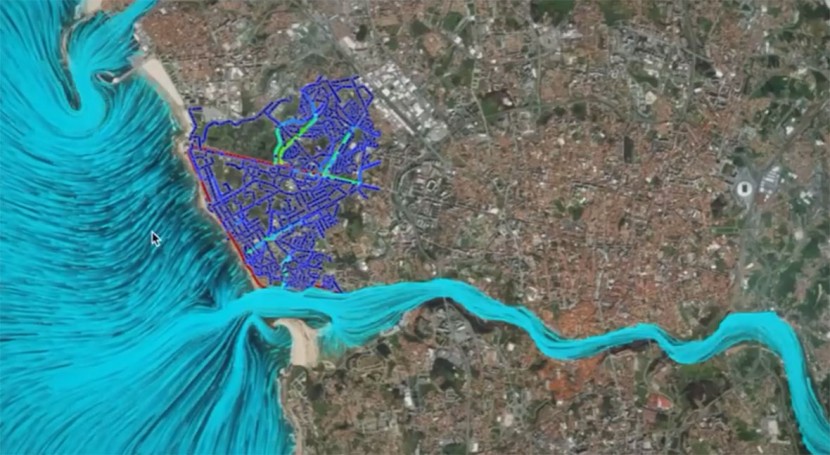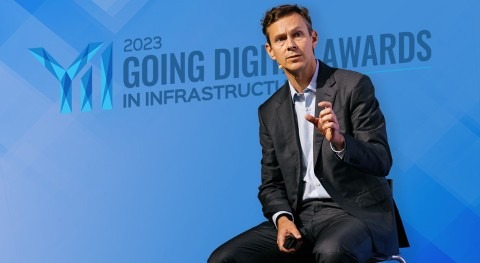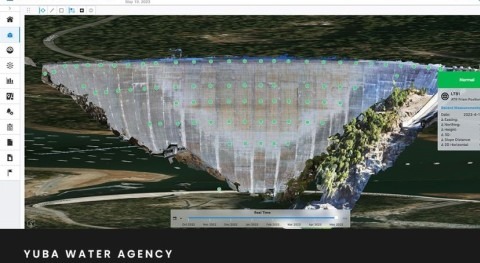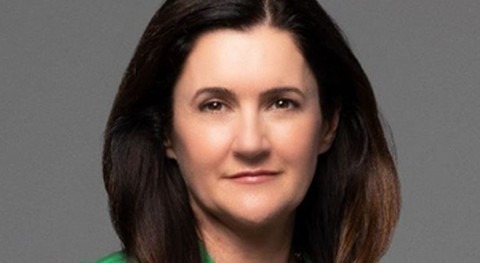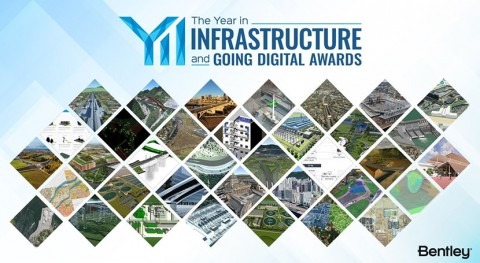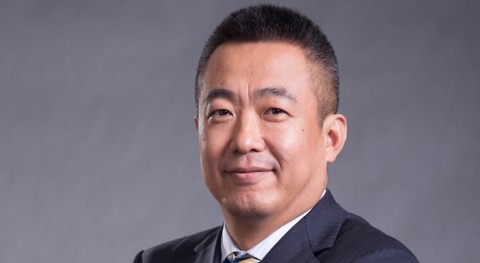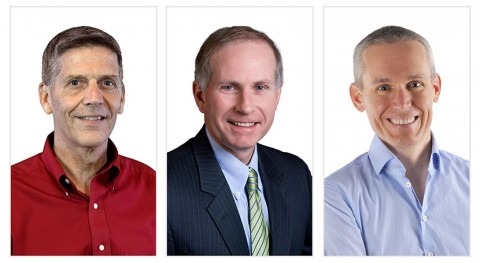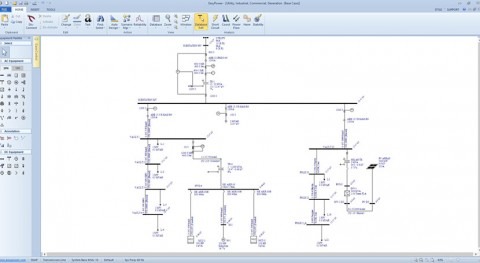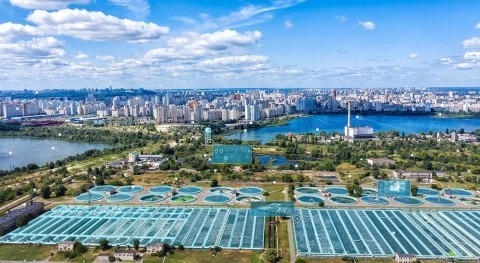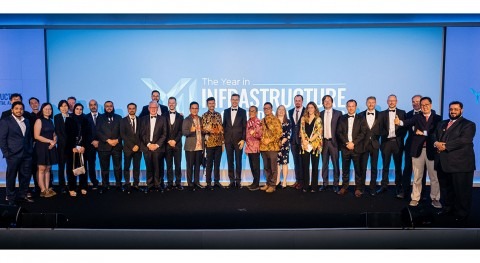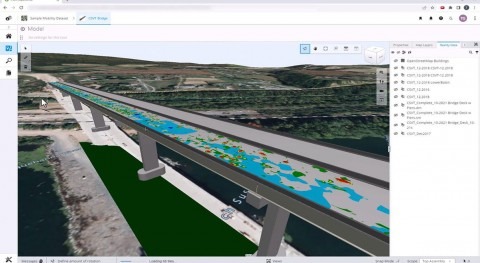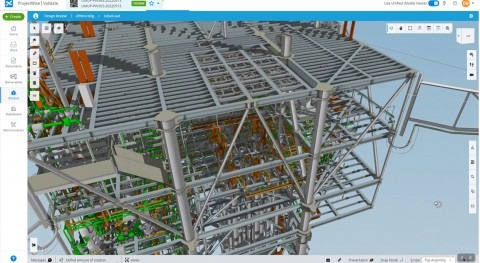On September 14th, Bentley experts, Slavco Velickov, Thomas D. Krom and Dennis Nygaard Hoyer will be conducting a Business Forum session at the IWA World Water Congress & Exhibition in Copenhagen. They will discuss how the digital twin journey helps water utilities become more resilient - regulatory, financially and operationally. To learn more about this upcoming event, Smart Water Magazine talked with Sandra DiMatteo, Industry Marketing Director, Water Infrastructure at Bentley Systems. She has more than 25 years of experience in reliability and asset performance management software, asset lifecycle information management, and digital twin cloud solutions in the water and wastewater, energy and process industries. Please read on to find out more about the participating panelists and what we can expect from the Business Forum on September 14th.

Sandra DiMatteo, Industry Marketing Director, Water Infrastructure at Bentley Systems
Question: What are some of the key challenges that water utilities face in their digital transformation journey?
Answer: Some of the key challenges faced by water utilities in their digital transformation journey include:
- People and culture – Change is hard but remember if you continue to do what you have always done, then you’ll always get what you’ve got! Operating and maintaining the assets that deliver smart and resilient water and wastewater services are a shared function between Operations, Engineering, Safety and Environmental compliance, Finance and Human Resources. But sharing relevant information and collaboration does not come easy. The digital twin helps your organization to digitally transform, to make processes systematic and automated, and to enable a connected (open and interoperable) data environment to share relevant information and collaborate to make the best decisions in a timely manner. Let’s make water better!
To start on the path to a smarter, more resilient, and sustainable water system, you need to be thinking about world class performance of the leaders in your industry. What do world class utilities look like? They adopt state of the art technology and practices to produce world class performance. World class performance implies being ahead of the pack. As the rest of the world catches up, leaders are moving further ahead by being early adopters of the latest technologies and practices. Early adoption provides a strategic advantage over the competition. At Bentley’s business forum, you will see examples of world class performance in utilities.
- Silos of Data and Where to Start – When it comes to managing water and wastewater systems, there are so many new technology solutions in the market solving just one or two problems for utilities. Yet IT struggles to bring these technologies together as a system of systems to see the whole picture. The digital twin is here to help make the processes of managing systems easier.
- Many utilities struggle with getting started with digital twins. The good news is that most utilities are already on their way to a digital twin in that they have a huge amount of data and asset information from several systems. The bad news is that the systems don’t talk to each other, you can’t correlate data from one system to another easily, and likely there are many data quality issues. Moving to a digital twin environment is a journey (not a destination), you start with what you’ve got, prove it small then scale fast. But don’t look for shortcuts. Short cuts take more time and often result in little or no change at all. Improvement is a journey taken on by colleagues at all levels of an organization together to proactively achieve goals (and is the essence of the Kaizen philosophy of continuous improvement).
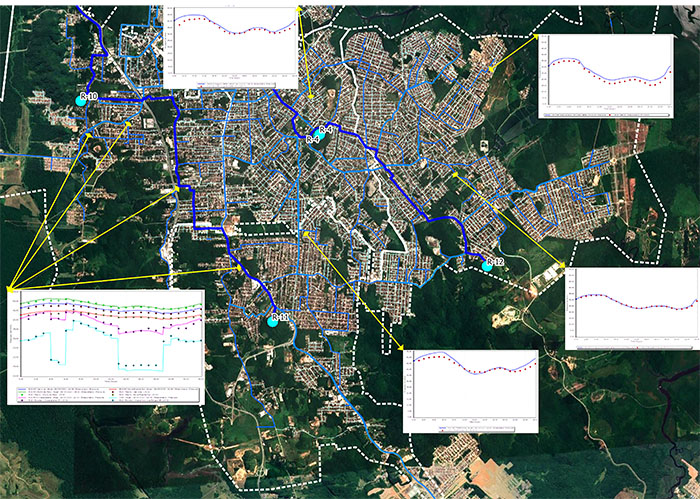 Credit: Bentley Systems
Credit: Bentley Systems
Q: Bentley Systems is exhibiting at the IWA World Water Congress & Exhibition, to be held from the 11th to the 15th of September 2022 in Copenhagen. What are your expectations from this event?
A: The International Water Association World Water Congress brings together some of the brightest minds in the water industry to discuss how we can protect the precious resource of water. Creating change and revitalising resources, water pioneers around the world take a deep dive into the ground-breaking achievements across the water industry.
You can discover Bentley’s work and the success of our OpenFlows users in the new online series being launched by the IWA at the Congress. The series, Beneath the Surface, is produced by BBC StoryWorks. In the series, Bentley presents two of the mini documentary films, discussing the future of water and the role technology plays in solving the most pressing issues facing the water industry.
Digital twins are a necessity for utilities to become more resilient and competitive, and improve the bottom line
The first Bentley film features Águas e Energia do Porto in Porto, Portugal, a city shaped by water, with thousands of sensors installed along the waterways all over the city. The data is fed into the digital twin platform for analysis and optimal decision making. After its deployment, the city’s water service interruptions decreased by 42%. This represents an outstanding 100% (continuous) improvement since Porto first implemented the digital twin just two years earlier.
The second Bentley film features Companhia Águas de Joinville (CAJ), in Joinville, Brazil, a city that has been experiencing some of the worst droughts in 30 years. Access to water means dignity for the people in the community, therefore drought and water scarcity have a huge social impact on people’s lives. The hydraulic model and the digital twin help to evaluate how the system is working and check the changes that can be done within the system to figure out what the response will be. The outcome can sometimes be surprising. It’s not just about engineering. It is about the impact that it has and the connections that go way beyond engineering work.
From the two films emerged a profound appreciation of the water ecosystem by the Bentley engineers that visited these two users. The rewarding thing about inventing technology, especially technology designed to help people in the business of water infrastructure, is that the work is part of a bigger, more complex set of human endeavors, to solve hugely important problems, like providing access to clean, high quality water in a consistent, dependable manner.
Q: Experts from Bentley and its partner ecosystem will be conducting a Business Forum session on 14th Sept at 11:15 AM (Room 1 - Hall E). Who will be the panelists participating in the Business Forum, and what will be the key topics discussed?
A: There will be three panelists:
- Slavco Velickov, Global Advancement Director, Water Infrastructure, Bentley Systems. Slavco is a chartered engineer and has over 25 years of experience in the water industry in all phases of infrastructural projects development, financing, and implementation. He has worked on more than 200 projects internationally: clean water, wastewater and stormwater projects, hydrodynamic and hydrological studies, industrial process plants and facilities, and renewable energy projects.
Slavco heads up a team of professionals that deliver Bentley’s Digital Water Twins solutions globally, implementing good industry practices on key topics such as non-revenue water reduction, risk-based asset performance management of aging infrastructure, investment planning, water treatment, wastewater collection and treatment, flood risk management solutions, renewable energy, improving energy efficiency of systems and implementing smart networks, industrial IoT, AI-based analytics and SaaS solutions.
He holds undergraduate and graduate degrees in Civil Hydraulic Engineering with post graduate specializations in Hydro-informatics and Business Development. His Ph.D. is from the Technical University in Delft.
- Thomas Krom, Segment Director, Environment, Seequent. Since 2007, Dr Krom has been involved in the development and use of Seequent software products; initially this was as Product Founder for Leapfrog Hydro. Starting in 2018, he has focused on guiding the strategic direction of Seequent in the environmental and sustainability areas. Dr Krom also heads up new initiatives inside Seequent. Prior to Seequent, his research and consulting included significant research into methods to describe and optimize hydrogeology statistically for environmental problem solving. Dr Krom has over 30 years’ experience in the geological sciences collected around the world. He lives and works in Denmark.
- Dennis Nygaard Hoyer, Infrastructure Software Consultant, Denmark. Dennis is a Bentley software expert with extensive experience in system setup and configuration, support, and training. He has extensive practical experience with integration between Bentley's design software, project management tools and common data environments. He works as a BIM- & CAD-consultant, helping clients utilize their full digital potential, across all their civil projects – regardless of the subject area. Dennis pushes the boundaries of digitization in the Danish Civil industry, and advocates for full digital solutions, transparency, and collaboration across multiple project disciplines – to minimize risk, make fewer mistakes and lower reduce costs.
Dennis is chairman for the Danish MicroStation User Group, acting as the link between a large group of companies, providing a professional forum for knowledge sharing and innovation. He is a registered Bentley Channel Partner and Product Institute Training Partner and has completed 3 Qualified Trainer programs within Bentley, as well as received several knowledge accreditations in various Bentley’s software brands. He serves as Bentleys local technical expert and is accredited to helping clients with both license purchase, support, and education in the usage of Bentley software. He lives and works in Denmark.
About the Business Forum Panel Discussion
The panel will discuss how the digital twin journey helps water utilities become more resilient from a regulatory, financial, and operational aspect. Digital twins are a necessity for utilities to become more resilient and competitive, and improve the bottom line. Every utility (no matter the digital maturity level) can embrace digital twins in different forms and generate immediate benefits/business outcomes: reduce leakage, reduce energy use, re-cycle water, contribute to carbon neutrality, SDGs and match better demand and supply in a water scarce future.
This forum will explain the different maturity levels in digital transformation and showcase 5 examples from cities around the world: Evides, AEGEA, Porto, Sabesp, DC Water. Panelists will discuss the key challenges and solutions in the digital transformation journey of these water utilities. Join in the discussion and see how you can use digital twins to make technology more reliable for users, transparent to communities, and adaptable for the changes we know will happen.
.jpg) Credit: Bentley Systems
Credit: Bentley Systems
Q: Could you give us a brief introduction to the solutions that will be discussed, and how can they help water utilities?
A: The solutions that will be discussed focus on the digital transformation journey and the water (and wastewater) system digital twin. A digital twin is a dynamic digital representation of the water, wastewater and stormwater systems and their behaviours using models with static and dynamic data that enable insights and interactions to drive actionable and improved outcomes.
Digital twins bring people, processes, data, and models together to solve complex problems and create efficiencies across the enterprise
Digital twins bring people, processes, data, and models together to solve complex problems and create efficiencies across the enterprise. They give an organization and external stakeholders a holistic view of system performance. The smart system offers peace of mind to know the systems and the operation are in control – because you cannot manage what you cannot control.
The integration of isolated, disparate data into a unified system of systems provides a uniquely collaborative and connected digital twin environment. To break down data silos, the digital twin must be cloud-managed. This means it is open, secure, flexible, and scalable. Water utility personnel can use the digital twin to zero in on data, apply AI and advanced analytics to gain actionable insights and support decision-making better than any single software system.
Q: Who should attend this session, and what will they be able to learn?
A: Anyone interested in hearing the amazing stories of leading utilities and their digital twin journeys should attend. It will save you the growing pains and leave you inspired to try digital twins in your quest to continuously improve. Utility Directors, Operations Directors, Asset Managers, IT & Innovations Directors, Directors of Engineering, Water and Wastewater Engineers should attend.


